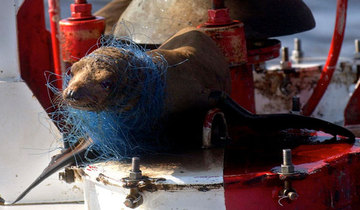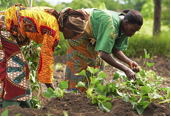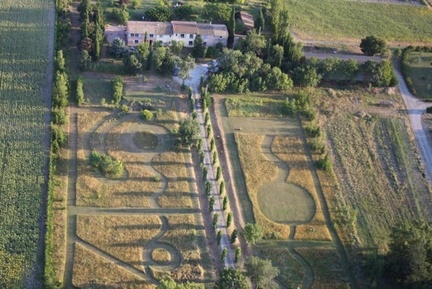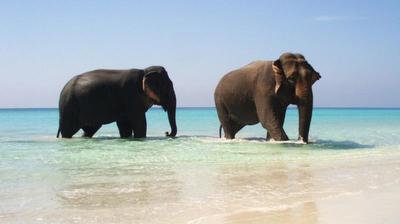The IMF report that governments subsidized the fossil fuel sector to the tune of $5.3 trillion dollars ($5,300,000,000,000) in 2014 has me questioning just about everything. The spending of taxpayer money, the education system . . . the meaning of life.
Were we put down on Earth just to pollute?
Luckily, some citizens see fit to bypass corporations and government and take matters into their own hands. Look at the California coast, where people are coming together to tackle real work that needs to be done.
New organizations, like Marine Animal Rescue, are replacing inadequate systems. This one works toward a more effective means of wildlife protection than the government is willing to offer.
Hidden Economy
Can people who step out of the boardroom and into the garden make a difference? Professionals choosing to change careers and go off grid not only redirect business investment, but they call into question the relevance of the very institutions that refuse to take notice of them. I call that 'positive shrinkage'.
Their positive shrinkage stories start with grassroots U-turns that give new meaning to careers and human endeavor. These are stories that need to be told about people who have rejected the complicity of their high-flying 'system careers' and switched to unprecedented self-reliance.
Back to the Land
I talked to three professionals who quit their system jobs to head back to the land. The first is Jessica Kakwano, a former career lawyer by profession who was drawn into the glamorous world of media & advertising. She loved doing account management for a leading bank and digital TV company. But when she started a family, the high-stress demands on her time became difficult to manage, so she left QG Saatchi & Saatchi and founded a pepper farm with her family. "One thing that stood out for me about farming as opposed to my desk job was the level of fulfillment and satisfaction I felt watching the plants grow from seed to mature fruiting plants. It beat winning new business for the production house," she said.
A large percentage of rural Uganda is not electrified, so the shops stock ready to use solar options: solar phone chargers, laptops, and lighting. Jessica bought handheld lights, a little bigger than flashlights that have solar panels on them. The people of the small fishing village of Misoli have directly benefitted from the farm. The farm gives priority to women when hiring so they can incomes to support their families. Their husbands are usually involved in risky fishing, and a few have lost their lives. In order to empower these women, Jessica and her family offer agricultural training in best practices for farming. "To be able to help these women and their families has been very fulfilling . . . . None of us went to agriculture school, its been a learning process all the way. It's been a journey driven by the will to make it work no matter what. Most of our peers cannot believe that we are farmers, who would leave a corporate job to go back to the land! But when they understand what we really do, their set opinions immediately change," she said.
We've heard plenty of stories about workers being outsourced out of a job, but no attempt has been made to count the highly paid professionals who often turn down six-figure salaries to start their own businesses, fostering sustainability for their communities and the ecosystem. Their stories matter because they offer a framework for re-evaluating business investment in light of scientists' recent realizations about climate change and upcoming changes in government policy. They have the potential to impact professionals deciding between joining business-as-usual organizations, and startup entrepreneurial activities that use more sustainable ways of working than business as usual. They can motivate the business community to factor government policy into business investment decisions, at a time when those $5.3 trillion a year subsidies to fossil fuel companies are on the chopping block.
The second sustainable entrepreneur I talked to is Barbara Taylor, who left her job in Belgium as a judge to work on an equestrian bed and breakfast with her sister in Carcassonne, France. She said goodbye to her former career, despite guaranteed job security and a comfortable life because she was very disappointed with the functioning of the justice system, stymied under more and more pressure, with fewer and fewer human and material resources to respond to it. "Above all, we punish offenders, while forgetting to treat all the pitfalls of our society that cause them to become delinquent: lack of education and instruction, insecurity, unemployment, etcetera . . . and frenzied consumerism!" Justice mainly produced dissatisfaction, frustration, and insecurity, rather than fulfilling its mission to ensure social peace. "I felt more complicit in a system that mistreats people as an actor in a public service that generates profit," she said.
She has since reconnected with a more simple way of life and regained some personal serenity, while safeguarding her children from the agitation of meaninglessness and profits, in Carcassonne, France. The environment is still preserved and the local mentality, is very authentic. "We know that we need a lot of courage and patience to rebuild a professional life, but we are already metamorphosed through this extraordinary rural setting. My personal plan is to become equestrian tourism guide to work year-round in contact with nature and animals and be able to discover the Cathar and the Pyrenees with the citizens who need them-also to reconnect with the essential for a little escape from their daily to keep going!"
Finally, I talked to Sidney Karunawardana who worked in London as a property developer for 23 years. Asked why he went back to Sri Lanka, he answered, "My mum and the rainforest. I want to save the forest and do something for place I was born in and my people. I think when we live in a big city we realize how important the environment is." Through his ecotourism business, he leads visits that do not bring negative effects to the environment, while raising awareness necessary for protecting the rain forest and the local community socially and economically.
Can positive shrinkage affect large-scale change?
It wasn't until 400,000 people demonstrated in New York, that the UN moved to enforce policies to address the findings of the International Panel on Climate Change, proving that people can affect policy, even if the wheels of democracy have rusted. This political event was followed by the dive in oil prices and the freeze in fracking, and new investment opportunities for the likes of Elon Musk. The answer is, yes it can.




